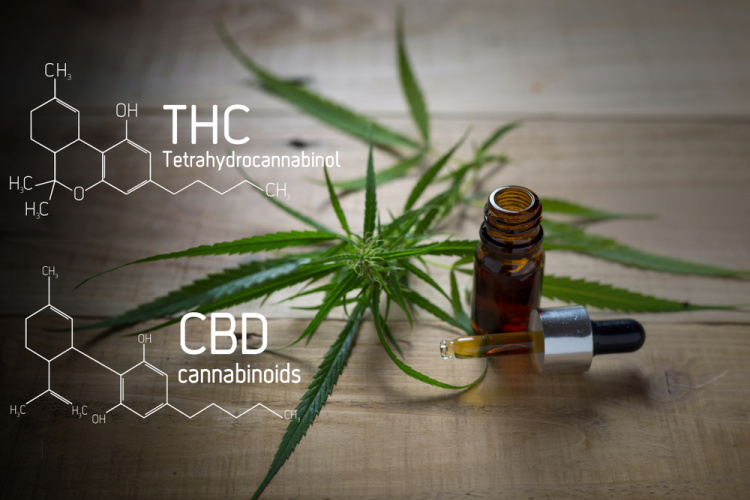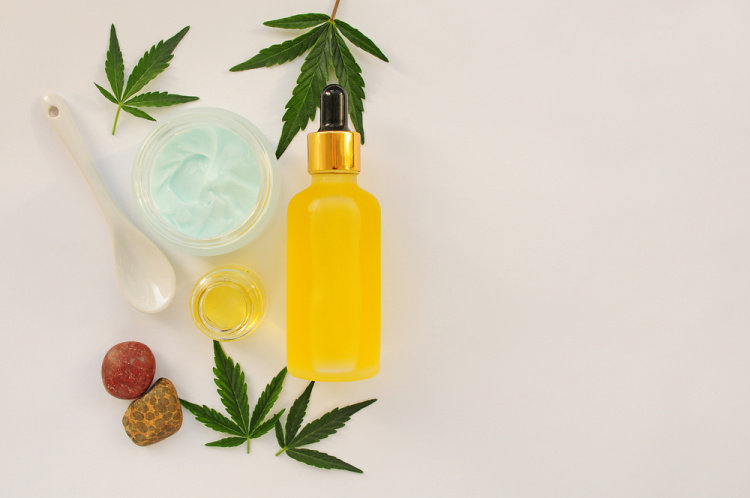Even if you’re new to the world of cannabis, you’ve probably come across the term cannabinoids. As the major group of “active ingredients” in cannabis and hemp plants, the cannabinoids include THC, CBD, CBN, CBG and many other lesser-known compounds as well.
But…what are the differences between CBD vs THC? And does consuming them together change how they interface with our bodies?
In today’s post, we’re going to answer these and other questions still. We’ll take a deep dive into the world of THC and CBD, focusing on how they affect our bodies, their potential medical benefits, and how they interact to potentially magnify each others’ effects.
CBD vs THC: Effects, Benefits, and Differences
Let’s begin by describing each of the two major cannabinoids in detail. THC is the predominant cannabinoid found in the cannabis plant and, to a far lesser extent, in hemp as well. Best known as being the main contributor to the cannabis plant’s euphoric “high,” THC imparts a number of useful medical effects as well.
For many users, the primary benefit of THC is its powerful pain-fighting effect, which it leverages by imparting natural anti-inflammatory properties at the site of an injury and using its characteristic euphoria to help modulate our experience of pain. In addition, THC can also offer relief from symptoms such as loss of appetite, anxiety and stress.
Then there’s CBD, the “second cannabinoid.” While it lacks the intoxicating psychoactivity of THC—CBD is sometimes described as imparting a mildly stimulating cerebral “buzz”—the cannabinoid is associated with a wide range of potential health benefits.

One of the main applications of CBD is as a remedy for anxiety. Anxiety disorders are the most common mental health disorder in the United States, and a number of studies suggest can CBD help. In one study, CBD successfully treated some of the symptoms of PTSD, including anxiety.
Another CBD study simulated the surprisingly common fear of public speaking and found that moderate doses of the cannabinoid induced a significant reduction in anxiety. Still another study found that CBD can function like an all-natural antidepressant.
CBD also appears to have a beneficial effect on pain, though there’s a difference between THC and CBD effects here. Research suggests that CBD is a powerful anti-inflammatory, though its activity is separate from that of THC. CBD reduces pain at sites of injury by modulating the actions of local signaling and repair cells. What’s more, it also partners with signaling mechanisms in the brain to enhance the actions of receptor cells there.
Like all other cannabinoids—including CBG and CBN—CBD and THC both interface with our bodies through a network called the Endocannabinoid System (ECS). Though only identified in the past several decades, the ECS is believed to be one of our body’s most important regulatory networks. If you’re curious about this crucial bodily system, further your education with this introductory article.
What Is CBD vs THC? Questions of Legality
It’s worth pausing here to discuss the varying legality of THC vs CBD. As of this writing, hemp-derived CBD is legal at the federal level. Why? That’s because hemp contains only very trace amounts of intoxicating THC, typically .3% or lower. That said, several states—Idaho, Nebraska, and South Dakota—maintain specific prohibitions on CBD products.
THC is a thornier topic. While still illegal on the federal level, it’s been approved for medical and/or recreational use in a majority of states. Check this recent list for current information.

With that important information out of the way, let’s turn to the topic of how THC and CBD can support each other for even greater medical benefits.
Why Consume THC and CBD Together?
As a number of clinical studies demonstrate, Consuming THC and CBD together can provide more therapeutic and subjective benefits than either of them alone.
One 2006 study found that treating patients with Sativex (an oral spray containing both THC and CBD) was able to reduce inflammation-related pain in patients suffering from rheumatoid arthritis. Another study from 2007 found that Sativex was effective at alleviating nerve pain in people suffering from multiple sclerosis.
Another reason to consume the two major cannabinoids together is that CBD may mitigate some of the intoxicating effects of THC. As studies suggest, CBD’s anxiolytic (or “anti-anxiety”) effects may mitigate THC’s subjective effects, which can include anxiety or even paranoia at higher doses.
Why might CBD have this effect? One theory is called the ensemble effect (sometimes called the “entourage effect”). This phenomenon suggests that cannabinoids and even terpenes—the aromatic “essential oils” in cannabis—produce different effects when consumed together than when consumed on their own.
It’s been suggested that full-spectrum extracts that are more representative of the whole cannabis plant may have more therapeutic value than just isolated molecules.
THC vs CBD: Understanding Ratios
Simply put, a THC:CBD ratio is the proportion of each cannabinoid is contained in a cannabis product. For example, a 1:1 ratio means that the product contains the same amount of THC as it does CBD.
While a 1:1 THC:CBD ratio may be effective and appropriate in some cases, other ratios may be better suited to specific symptoms and conditions. Take a careful look at the label of your product to see what ratio of cannabinoids it contains, or better yet ask your friendly budtender next time you visit a Green Goods location.
For example, if you wish to experience more intoxicating effects, a THC-dominant ratio may be a better idea. It may also be a better choice if you’re looking to take advantage of THC’s potential therapeutic benefits as discussed earlier.
On the other hand, CBD-dominant ratios can be a good choice for those who wish to experience some of the therapeutic benefits of THC without experiencing many (or nearly any) of its impairing effects. At Green Goods, we always stock a selection of CBD-only products for those who want to take advantage of this powerful cannabinoid without any intoxicating effects.
Explore THC, CBD and More with Green Goods
We hope today’s post has shed light on the topic of THC, CBD, and how they can work in partnership for even greater medical benefits. Whether you use cannabis to as a support for specific symptoms, a boost to your overall wellness—or just an all-natural way to unwind with friends and family—we’re committed to helping you get the most value and enjoyment from your cannabis purchases.
Looking for a product with a specific THC:CBD ratio? Start by finding your nearest Green Goods location for a range of tinctures, edibles, topicals, and more that feature both THC and CBD. And if you have any other questions about CBD vs THC—or other cannabis-related topics—just ask! We’re always here to help.
